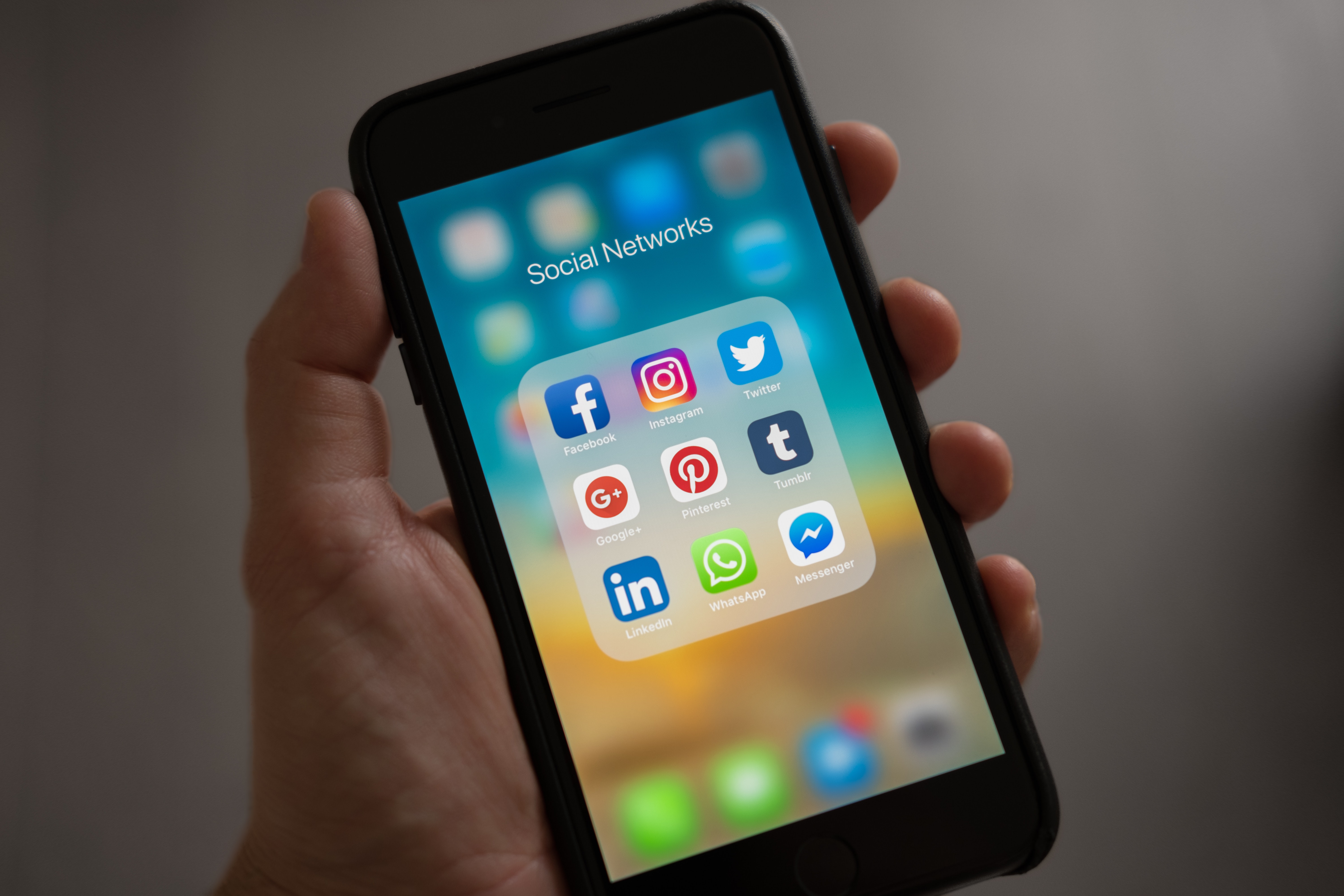The Best Digital Marketing Channels for Your Business
In today’s digital world, you need a comprehensive digital marketing strategy to get in front of your target audience. Which digital marketing channels should you use?
In today’s digital world, you need a comprehensive digital marketing strategy to get in front of your target audience.
Research shows that 87% of consumers start their buying journey online, whether they’re checking out your website, reading customer reviews or following your social media accounts.
But before you can create a digital marketing strategy, you need to decide which channels will work best for your brand.
For those that don’t know, a digital marketing channel is simply a way of communicating your marketing content.
Popular channels include email marketing, social media and SEO, but there are many more to choose from.
With so many options available, it can be challenging to figure out which digital marketing channels are the right fit for your business.
In this article we explain what digital marketing is, highlight some of the most effective channels and help you decide which approach best suits your business.

Firstly, What Is Digital Marketing?
Digital marketing is defined as any type of marketing that uses internet-based technology to help sell a product or service.
Companies use digital marketing to reach customers via their desktop or mobile device, and with over 63% of the global population now able to access the internet, the potential reach is huge.
There are many effective digital marketing channels, such as social media marketing, email marketing, pay-per-click (PPC) and more.
Digital marketing offers an attractive alternative to traditional marketing channels like adverts in newspapers, on billboards or on TV, and is generally a more effective way to communicate with your ideal customers.
Here are a few reasons why:
It Allows You to Reach a Wider Audience
With digital marketing, the world is your oyster.
Since anyone with an internet connection can potentially view your content, digital marketing allows you to promote your business to a global audience.
This can be great for a SaaS (software as a service) company that wants to sell its products to international customers.
But digital marketing is also a great way for smaller businesses to reach a wider audience within their community.
For example, a local florist could promote their business on Instagram and follow people who live in the area.
This way the business can potentially expose itself to a much wider target audience than by posting an advert in the local newspaper or sending out leaflets.
You Can Promote Different Types of Content
Digital marketing allows you to be experimental with the type of content you produce.
Many large businesses use social media marketing, email marketing, influencer marketing and more to target their customers.
Those operating on a smaller scale may prefer to focus on one or two of these channels depending on what works best for them.
Digital marketing can take the form of social media posts, helpful blog articles, email newsletters and much more.
By creating content to appeal to specific consumer groups and tracking the results, businesses can hone in on the most effective digital marketing channels for their unique brand.
Increase Brand Awareness
Brand awareness is all about how familiar consumers are with your brand. Digital content can help your brand become more recognisable in many different ways.
You might decide to focus on search engine optimization (SEO) to make your website rank higher on Google, or you could use influencer marketing to promote your brand to the followers of a popular influencer in your niche.
By increasing brand awareness within your target market, you increase the likelihood of those consumers eventually purchasing your product or service.
It Gives You Detailed Insight
One of our favourite things about digital marketing is how easy it is to measure results.
Brands can instantly see how well their digital marketing campaign is performing by analysing data on conversion rates, number of website visitors, level of engagement with social media and more.
Tools like Google Analytics can help you to measure this kind of data yourself, or you can enlist the help of a digital marketing agency like us for more detailed insight.
It’s much more difficult to measure the success of a traditional marketing campaign, since broadcasting an advert on TV or handing out leaflets cannot be directly linked to an increase in sales.
8 Effective Digital Marketing Channels for Businesses
Want to boost your digital marketing efforts but not sure where to start?
Check out our list below for an introduction to our favourite digital marketing channels, including:
How each channel works
The benefits it can bring to your business
What types of business it is best suited to

1. Content Marketing
Content marketing is a strategy that involves creating and sharing useful content that will appeal to your audience.
Rather than directly promoting a specific product or service and encouraging customers to buy it, content marketing takes a more subtle approach.
A company that sells bespoke furniture could post blog articles on its website about how to create a comfortable living space, or which interior design trends are popular right now.
Although the content is not directly selling a product, it positions the company as an expert in its industry and a source to be trusted.
By increasing brand awareness and creating relevant, engaging articles, content marketing keeps your company top of mind.
Articles can be shared through a variety of digital channels, including on your website, social media, newsletters and more.
You can either write the content yourself, or hire a freelancer or a content marketing agency to help you with the strategy and production.
2. Social Media Marketing
With the average adult spending almost two and a half hours per day on social media, it represents a huge marketing opportunity.
There are multiple social media platforms to choose from, and finding the most effective one will depend on the type of business you have and your audience.
If you have a clothing brand aimed at 18-25 year olds, it might benefit you to have a presence on TikTok.
But if your target audience is of an older age group, you might be more likely to find them on Facebook or Instagram.
Social media marketing is a great way for businesses to engage and build relationships with their audience, as well as a place to find out what really makes them tick.
By creating polls, responding to comments and engaging with your audience in a more informal way, you can get to know your audience while boosting your brand’s reputation.
Social media is also a good place to share links to blog posts and other articles your target audience will find interesting, as well as high-quality images of your product or glowing customer reviews.

3. Search Engine Optimization (SEO)
Search engine optimization is a digital marketing channel that focuses on pushing your page higher up the rankings in Google’s search results.
When people do a Google search, they are likely to click on one of the first three results rather than scrolling down and checking out each and every result.
The higher up the rankings you are, the more likely it is that people will visit your website.
SEO is fairly complex, but one of the ways you can boost your ranking is by using keywords that are relevant to your business.
This involves identifying the keywords that you’d like your website to rank for, and then creating content featuring those keywords.
A shop that sells computers might want to rank for the keyword “best cheap computers”. They could write an article on this topic and post it on their blog, making sure to use the keyword multiple times.
If Google decides that it’s a relevant article and more and more people click on it, it will climb higher up the search rankings, potentially exposing your business to thousands or even millions of people.
It’s possible to get started with SEO on your own and there are tools to help, but getting it right can be complicated.
If you really want to implement an effective SEO strategy you may want to consider hiring an expert.
4. Email Marketing
Email marketing does exactly what it says on the tin: it describes any type of marketing communications that you email to potential customers.
It’s one of the easiest ways to communicate with your customers, and it boasts a high ROI of $36 for every dollar spent.
Emails are an excellent way to communicate directly with customers and remind them about your business.
This is another channel where the possibilities are only limited by your imagination. You could send newsletters, special offers, discount codes or information about new product drops.
Many companies segment their customers into different groups, which allows them to send out targeted messaging to appeal to each segment.
You might have different offers for new and returning customers, or you could segment them based on previous purchases or geographical location.
Email marketing is fairly easy to set up, and can be automated so that emails are sent when people are most likely to be receptive to them.
But make sure your content is relevant, well-written and doesn’t irritate your customers.
Send emails too often or get the messaging wrong and you risk customers unsubscribing from your list and forgetting about your business.
5. Pay-Per-Click (PPC)
Pay-per-click marketing allows you to buy visibility on search engines. Businesses will bid on keywords that they would like their advert to appear for.
Prices can also be determined based on where the ad appears on the page (usually it’s at the top of the search results), the day or time of day it will appear, and more.
As the name suggests, with PPC marketing you only pay if a customer clicks on your ad. If this type of marketing is done right it can double your ROI to $2 USD for every $1 USD spent.
However, the PPC format and the budget required can be unpredictable, since the number of clicks you receive each day, week or month will vary.
Pay-per-click marketing is ideal for periods when you need to see immediate results. It’s quick and easy to set up, and it can be a great way to promote a new product or a limited-time sale.
Although it may not suit every business due to the cost involved, it can be a great way for those with a dedicated marketing budget to generate more sales.
6. Affiliate Marketing
Affiliate marketing is when a third party (or “affiliate”) promotes one of your products in return for a commission.
They will promote your product or service on their website or social media accounts, and provide customers with a unique link which they can use to buy the product.
Similarly to PPC marketing, affiliate marketers are only paid after a customer has clicked on their ad and made a purchase.
The affiliate will then receive a percentage of the total cost, so it’s a win-win situation for both the business and the affiliate.
Affiliate marketing is a great way to increase brand awareness, since your product will be seen by the affiliate’s followers.
If you choose the right people to work with, you could be placing your product right in front of your target audience.
This type of marketing also feels more organic and authentic than some other approaches, since your potential customers are being recommended a product by someone familiar who they trust.
But it does require you to put your brand’s reputation in someone else’s hands, so you’ll need to carefully choose and monitor who you work with.
Affiliate marketing is ideal for companies that sell a physical product, although it can also work well for those that sell digital products and services.
For example, a well-known website that provides reviews of SaaS products for businesses could write a positive review of your product, including an affiliate link where people can sign up.
7. Influencer Marketing
Influencer marketing has some similarities to affiliate marketing, although there are a few important differences.
While both channels use a third party to promote a business and its products, the approach and payment structure is different.
Influencers do not typically use affiliate links to promote products, and they are usually paid a flat fee for their work.
In some cases they may not be paid at all, instead receiving the product as a gift.
A popular fitness influencer might be gifted some workout clothing, with the agreement that they will wear it in their YouTube videos or talk about it positively on their Instagram story.
With research showing that 49% of people depend on influencer recommendations to help them make purchasing decisions, the power of influencer marketing is clear to see.
Just like with affiliate marketing, people are more likely to buy a product if it has been recommended to them by someone they trust.
This channel is best suited to businesses that sell a physical product, with an audience that uses social media regularly.
To use it effectively you’ll need to do some research to find out which influencers are popular with your target audience.
8. Video Marketing
Video marketing is a fast-growing digital marketing channel that offers a new way to connect with your audience.
And with 96% of people saying that they have watched a video to learn more about a product or service, it’s becoming one of the most popular ways for people to access information.
The type of product or service you sell will determine the kind of video content you produce.
A company that sells tools and DIY equipment could post a video about how to put up a shelf, or they could do a detailed review of the latest drill from a well-known brand.
Both of these types of content add value to the audience, while positioning the business as a reliable source of knowledge.
Since all you need is a smartphone to get started with video marketing, it’s one of the more accessible digital channels.
You can create a free account on YouTube to share it to, as well as posting videos on social media and on your website.
Try to make your videos as engaging as possible, and think about the type of content that will provide the most value to your audience.
How to Choose the Best Digital Marketing Channel for Your Brand’s Needs
Now that you know about the different types of digital marketing channels, it’s time to decide which ones will work best for your business.
To help you make your mind up, we’ve listed a few things to consider below.
1. Decide On Your Brand’s Campaign Goals
Before even thinking about creating marketing content, you need to determine what your goals are. Ask yourself why you want to implement a digital marketing strategy.
Is it because you want to increase brand awareness, generate more leads, increase website traffic, or something else?
Once you’re clear on what you want to achieve, think about which channels will best serve this purpose.
If you want to boost sales quickly you might consider a PPC marketing campaign.
But if you have a long-term goal of increasing website traffic you may decide to focus on search engine optimization.
2. Take Your Budget into Consideration
You’ll also need to decide how much money you can allocate to your digital marketing budget.
Although you can create some types of digital marketing yourself, like social media content or email newsletters, managing all of this alongside your day job can be challenging.
If you have the budget, it may be more efficient to hire an expert to help
Make sure that you understand the different costs associated with each type of channel, too.
Whereas PPC and affiliate marketing cost varies according to the number of clicks or sales completed, other channels like influencer marketing or SEO are likely to have a fixed cost attached.

3. Think about Your Audience Demographics
For your digital marketing campaign to be a success, you need to make sure your content is reaching your target audience.
Do some research to find out which channels your dream customers are most receptive to, and how they usually find out about brands and products.
There are lots of different demographic groups to consider, and you may want to think about segmenting your customers into groups based on things like age, location, income, gender and more.
You could give each group a detailed persona and include information about their personality, likes and dislikes, spending habits and more. Once you’ve done this you can create targeted marketing campaigns to appeal to each group.
Want to Kickstart Your Digital Marketing Campaign?
An effective digital marketing strategy is essential for any business in today’s fast-paced, hyperconnected world.
From email marketing to video marketing and more, there are lots of exciting ways to connect with your audience and showcase your product.
But choosing the right digital marketing channels and executing successful campaigns can be complex and time consuming. Especially when you’re trying to run a business too!
If you want to create an amazing digital marketing campaign but aren’t sure where to start, Hello Social can help.
We’re marketing experts, and we love helping businesses to find the best digital marketing channels for their needs.
Give us a call or send us an email to learn more about how we can help you use digital marketing to connect with your ideal customers.







